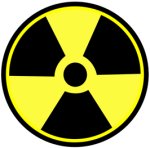It’s a given that solar power is far safer than utilising nuclear energy for power generation – but it’s also cheaper according to a study from Queen’s University in Canada.
As Japan grapples with the human tragedy of the recent earthquake and tsunami that has killed thousands and seen millions without basic services, the entire world also awaits nervously on the outcome of its nuclear emergency. At the time of writing, the Fukushima nuclear plant situation has been upgraded to a level six incident by France’s Nuclear Safety Authority, making it the world’s second most severe nuclear power incident.
The nuclear emergency in Japan has generated incredible knock-on effects – both locally and globally. Hundreds of thousands of citizens have been evacuated around the Fukushima nuclear plant and increased radiation levels have been detected hundreds of kilometres away in Tokyo.
Outside Japan’s shores, the emergency has sent nuclear stocks crashing and governments reconsidering their own nuclear energy situations. Germany has shut down 7 of its own nuclear reactors and the European Union is planning to test all nuclear power plants in all member countries. Australian Prime Minister Julia Gillard reaffirmed Labor’s position that nuclear energy is not needed in Australia as the nation has abundant solar power, wind energy and other renewable resources.
The incident has also placed a highlight on the true cost of nuclear power. Even with the massive cost of dealing with such incidents such as Fukushima aside, like the real cost of coal, much of nuclear energy’s price tag is hidden.
Mechanical and Materials Engineering professor Joshua Pearce from Queen’s University in Canada says government-backed liability subsidies artificially reduce the costs of nuclear energy in North America as nuclear is “simply not insurable in the free-market”.
A Queen’s University study published in the academic journal Energy Policy suggests that renewable energy is a more economically viable option when nuclear’s high construction costs, security risks and long-term management of nuclear waste are considered. Even just taking the liability subsidies into account, if this funding of nuclear power was diverted to solar panel manufacturing, it would see more installed power and more electricity produced by the middle of this century. Under such a scenario, by the end of the century, solar electricity would provide an additional 48,600 TWh over nuclear energy based electricity generation.
Related:
Japan Nuclear Emergency Casts Cloud Over Australian Aspirations












































